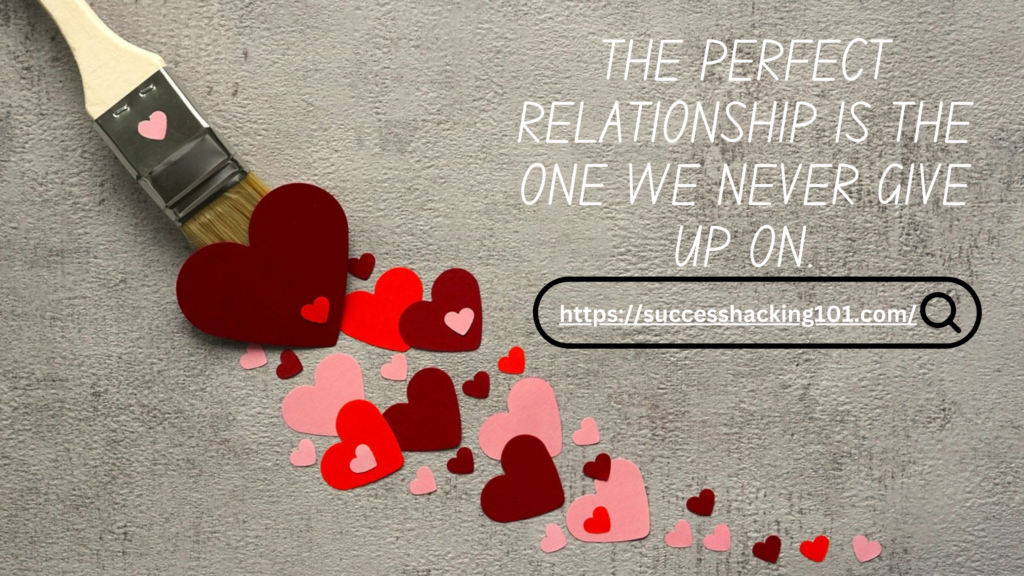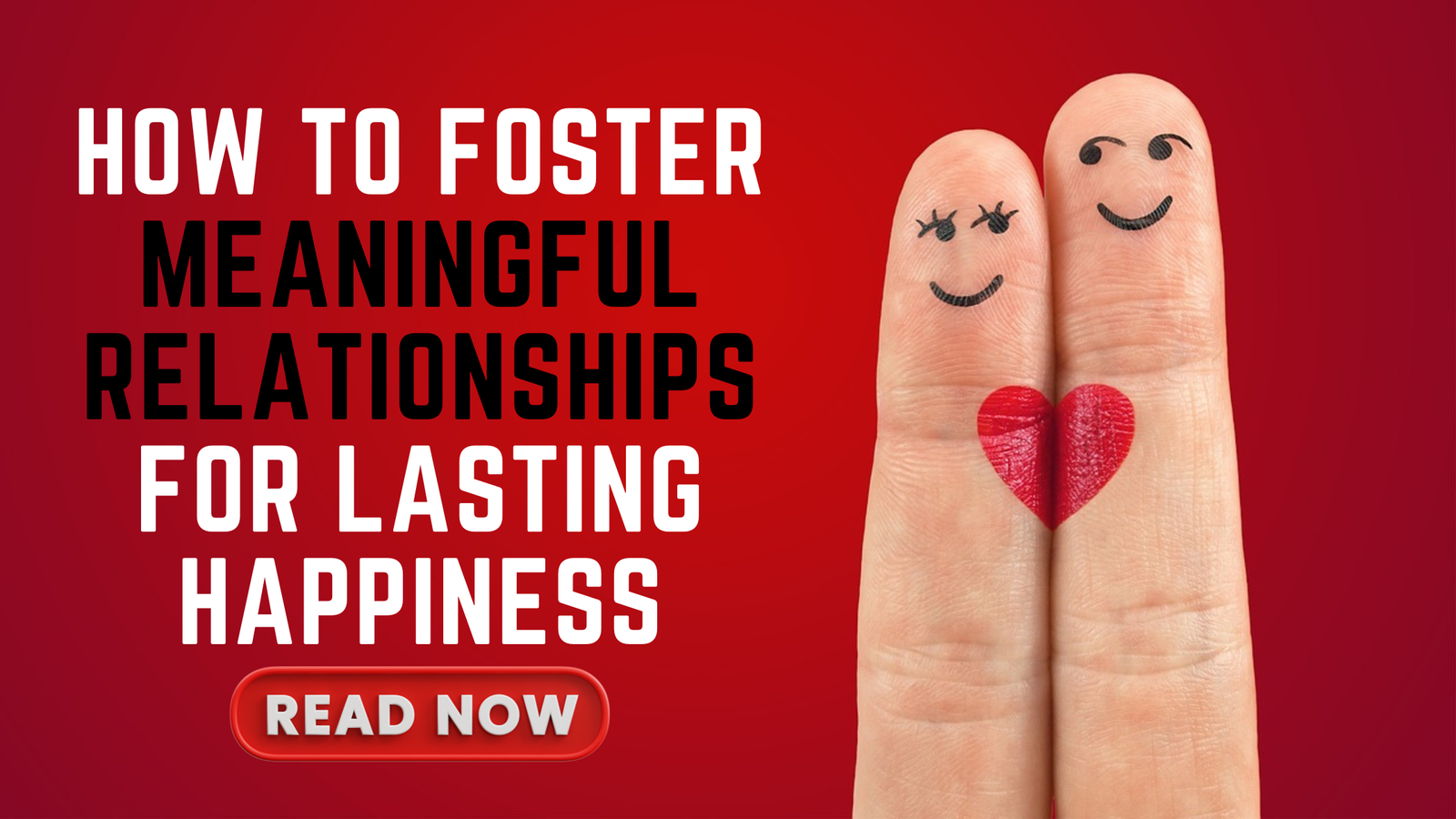I. Introduction
How many of us can truly say we understand the essence of fostering meaningful relationships for lasting happiness? In a world that’s constantly on the move, it’s easy to lose sight of what truly matters for lasting happiness. This article is a guide to foster meaningful relationships for lasting happiness. It’s your compass for navigating human connections. It’s aimed at helping you build lasting relationships. These relationships enrich your life profoundly.

II. Understanding the Basics of Relationships
A. Definition of meaningful relationships for lasting happiness
Meaningful relationships are those that bring about positive emotions, growth, and a sense of fulfillment. These are the bonds that go beyond the surface, offering a deep connection with another human being.
B. Different types of relationships
From friendships to romantic partnerships, even professional connections matter. Each relationship type plays a pivotal role. They contribute to our sense of happiness and well-being.
III. The Foundation of Healthy Relationships
A. Communication skills – key to foster meaningful relationships for lasting happiness
The cornerstone of any lasting relationship is communication. Setting a foundation with clear, compassionate, and open communication channels is vital.
B. Empathy and understanding
Walking a mile in another’s shoes isn’t just a saying. It’s a fundamental practice. It nurtures empathy and understanding in your relationships.
C. Trust and honesty
Without trust and honesty, relationships often crumble. Cultivating these elements ensures a strong, lasting bond.
IV. Building and Maintaining Relationships
A. Making time for others
In our busy lives, making time for those we care about is crucial. It’s the quality of time, not merely the quantity, that strengthens bonds.
B. Showing appreciation
A simple ‘thank you’ can go a long way. Regularly expressing appreciation boosts relationship satisfaction.
C. Supporting each other
Be it in times of joy or despair, offering support cement relationships, creating a safety net of trust and love.
D. Keeping the connection alive
The little things often mean the most—sending a thoughtful message or remembering a special date can ignite joy and closeness.
V. Overcoming Obstacles in Relationships
A. Navigating conflicts
Conflict is a natural part of relationships. The key is to handle disagreements with respect and a willingness to understand.
B. Dealing with change
Change is inevitable. Embracing it together, rather than resisting, can turn challenges into opportunities for growth.
C. Handling distance and time apart
Distance doesn’t have to spell the end. With effort and creativity, relationships can flourish, even across miles.
VI. The Role of Self-Improvement
A. Personal growth for healthier relationships
Personal growth doesn’t just benefit you; it’s also vital for the health of your relationships. Strive to be the best version of yourself.
B. Setting boundaries
Healthy boundaries are integral to mutual respect and understanding in any relationship.
C. Cultivating self-love
You can’t pour from an empty cup. Loving yourself is the first step toward being able to offer love to others.
VII. The Impact of Social Networks
A. Balancing online and offline interactions
While social media keeps us connected, cultivating offline, face-to-face connections is irreplaceable.
B. Positive and negative effects of social media
It’s essential to navigate social media wisely, as its impact on relationships can be a double-edged sword.
VIII. Community and Relationships
A. Finding support in the community
Creating or finding a community can offer additional layers of support, enhancing your sense of belonging and connectedness.
B. Volunteering and shared activities
Shared activities, especially those aimed at helping others, can strengthen relationships, fostering a sense of shared purpose.
IX. Long-term Relationships
A. Keeping the spark alive
Continuously investing in your relationship can keep the spark alive, even through the ups and downs of life.
B. Growing together
Embracing each other’s growth and changes fortifies relationships, ensuring you grow together, not apart.
C. The concept of ‘relationship work’
Relationships take work, but it’s this effort that builds resilience, depth, and lasting happiness.
X. Conclusion
Fostering meaningful relationships is a profound journey, one that requires patience, understanding, and genuine effort. The joy and fulfillment derived from deep, meaningful connections are unmatched. As we navigate through life, let’s remember the true essence of happiness lies in the quality of our relationships.
XI. FAQs
1. Is it possible to have meaningful relationships with colleagues?
Absolutely! Any relationship that provides mutual respect, support, and positive growth can be meaningful, including those with colleagues.
2. How can I mend a strained relationship?
Communication is key. Addressing issues openly, apologetically, and with a willingness to forgive can mend strained bonds.
3. How often should I communicate with loved ones to maintain a good relationship?
It’s not about frequency, but quality. Even occasional, meaningful interactions can sustain a strong relationship.
4. Can long-distance relationships truly work?
Yes, with trust, communication, and dedication, long-distance relationships can thrive and be fulfilling.
5. How can I build meaningful relationships as an introvert?
Start small and focus on quality over quantity. Engaging in shared activities or passions can also ease the process of forming deep connections.











2 thoughts on “How To Foster Meaningful Relationships for Lasting Happiness”